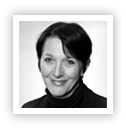 Q: What is the first lesson to learn in becoming a successful actor?
Q: What is the first lesson to learn in becoming a successful actor?
LG: There are many actors who pursue this career professionally. Being a Personal Manager for over 30 years with my own Management company, I can say I have seen many actors come and go- some had talent, some did not. The most important factor in achieving success is commitment. There is an old saying “Out of every 3 actors, one will make it. Not because of Talent or Looks. But because the other two give up.” This is very true- but multiply that by thousands. One in every thousand perhaps has the persistence and dedication to keep at it.
So the first lesson would be- love what you do, commit to what you do, and work harder than anyone else at what you do.
Q: What do you wish you knew when you started in your field?
LG: I wish I knew that it is important to learn everything you can about life. It all contributes towards your knowledge as an actor. Do not just save the learning for in the classroom. Look and listen to everything and everyone around you. There is a wealth of knowledge about the human condition and human behavior out there, which is the core of the craft of acting.
Q: How do I get the most out of my acting program at NYFA?
LG: Do not miss class, do not miss class, do not miss class! You can’t learn your craft without doing it and watching it. You can’t make up for the valuable time in front of an audience and being the audience. Actors should also work with filmmakers as much as possible. The more they are in front of the camera, the more comfortable in front of camera they become, and the better actors they become.
Q: What is the most valuable lesson you’ve learned in your professional career?
LG: The biggest lesson I think I’ve learned – and I want to pass on- is “Do not burn bridges.” The Entertainment Business is about relationships: relationships that you build and refine, and go back to again and again. I am still involved with the people I started working with over 30 years ago. I am able to call up Ron Howard or Henry Winkler and others, and ask them to come speak to our students. That’s a pretty amazing relationship to have.
Q: Which pieces of equipment do you find most effective in your field?
LG: Every actor should own a video camera; it’s an extremely valuable learning tool. When you have a way to record your own work – and get feedback from the playback – you are able to judge your own performance and learn from it.
Q: What are the essential first steps to breaking into this field after completing a program at NYFA?
LG: One of the great things about learning at NYFA is the fact that you will “hit the ground running.” We have given you the necessary tools: the skills to put together your demo reel, headshot, resume, the information that you will need to start contacting agents and managers, and the acting skills to create a believable, nuanced performance. Your first steps are complete.
The second step comes after you leave here. You will need to get your materials to agents and managers, get referrals from friends, knock on as many doors as you can, and continue doing as much as you can on camera. One of the great thing about our program is that students in each department are developing relationships with students from other departments – actors working with filmmakers, producers, screenwriters, and photographers. So many of our students continue these relationships after school and are able to act in some incredible projects that our other alums are doing.
Q: How long does it take to become a good actor?
LG: There is no magic number of years. Every actor learns and develops at a different pace. One thing that is certain as an actor: you are always learning, always becoming better. Learning to act is a life long process. If you do love the craft, you will do something every day that gets you closer to your goal of becoming a good actor